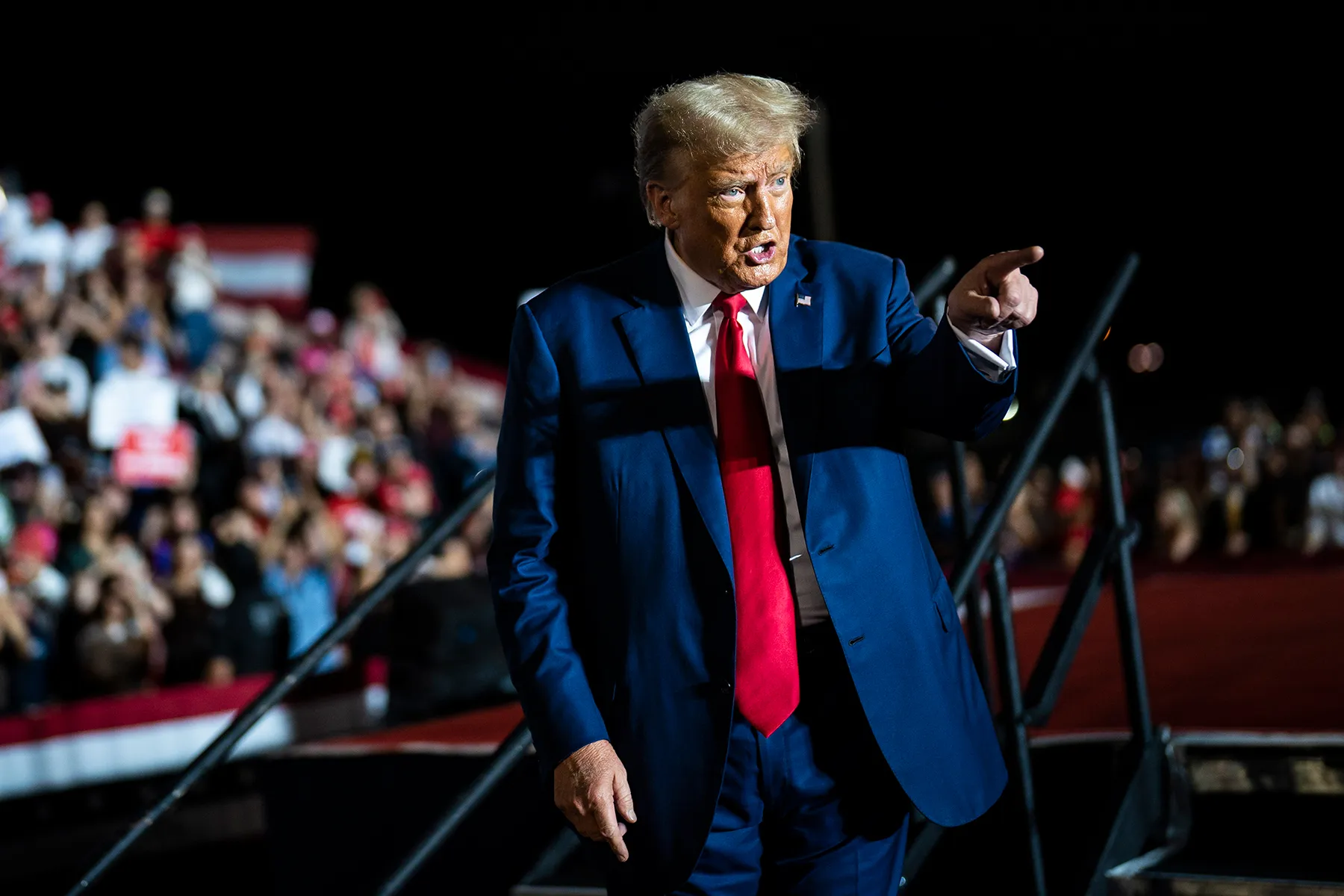Former President Donald Trump has announced plans to use the Alien Enemies Act of 1798, a centuries-old law originally designed to detain “enemy aliens” during wartime, as part of his strategy for mass deportations if re-elected.
This controversial move could have far-reaching implications for both legal immigrants and their U.S.-born children, potentially leading to their detention under a law that has been invoked only during national conflicts like the War of 1812 and World War II. The potential use of this act in modern times has raised concerns about its legality and fairness, especially under the conservative-majority Supreme Court.
During a campaign event in Aurora, Colorado, Trump detailed a plan to target undocumented immigrants with gang affiliations, calling it “Operation Aurora.”
He falsely claimed that the Denver suburb has been overtaken by the Venezuelan gang Tren de Aragua and said his administration would target all “illegal migrant criminal networks” in the U.S. The proposal has sparked fears of indiscriminate detentions, potentially affecting not only criminals but also lawful immigrants caught in sweeping enforcement actions.

The Alien Enemies Act allows the detention and deportation of foreign nationals only during declared wars or invasions. Legal experts, including Katherine Yon Ebright of the Brennan Center’s Liberty and National Security Program, argue that it would be difficult to apply the law to today’s immigration challenges without declaring criminal organizations like drug cartels as foreign nations.
Ebright warns that this law while gaining popularity in political rhetoric, is an outdated tool that could undermine constitutional protections and escalate political tensions by framing immigration as an “invasion.”
Trump’s campaign asserts that his immigration policies align with the desires of many Americans who favor mass deportations. Campaign spokesperson Karoline Leavitt emphasized that Trump would pursue the largest deportation initiative in U.S. history, using all available legal avenues, including the Alien Enemies Act, to target criminal networks.
However, the former president has been criticized for increasingly extreme language about immigrants, describing them as an “enemy from within” and using terms reminiscent of white nationalist rhetoric.
At the same time, there are efforts in Congress to repeal the Alien Enemies Act. Senator Mazie K. Hirono has introduced the Neighbors Not Enemies Act, which seeks to eliminate the 1798 law. Hirono argues that the act is a xenophobic and outdated measure that has been used to unjustly target immigrants in the past, and she advocates for its removal to prevent potential future abuses.


